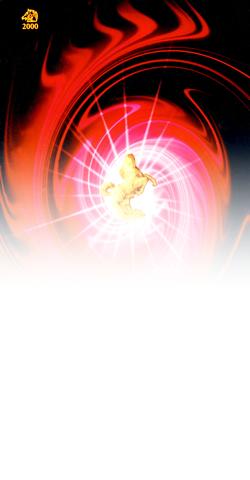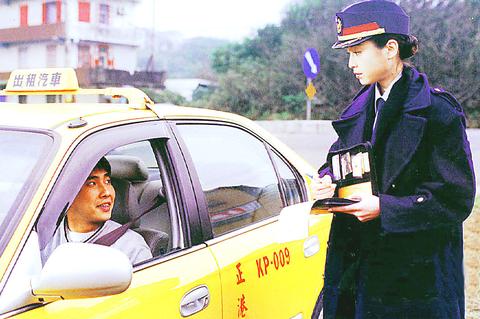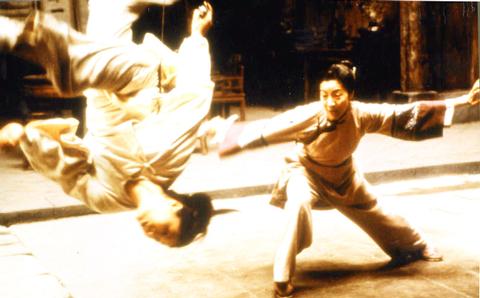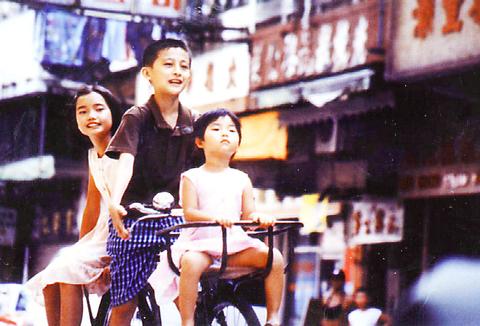It's time again for the annual showdown tomorrow night at the 37th Golden Horse Awards (GHA,
For Taiwan though, this year's lineup of participating films is the cause of some embarrassment, since only about a third of the 44 films taking part this year are from Taiwan. Films from Hong Kong account for much of the remainder. This is a symptom of Taiwan's low annual production of films -- less than 20 productions per year.

But despite indications that the slump in Taiwan's movie industry is far from over, the coming together of such major figures as Ang Lee, Wong Kar-wai, Tony Leung (

PHOTO: COURTESY OF CENTRAL MOTION PICTURE CORPORATION
In addition to its box office success, Ang Lee's exhilarating martial art film Crouching Tiger, Hidden Dragon (
"A specialty of this year's Golden Horse is the abundance of excellent films," said the award's jury chairperson Lo Hui-min (

PHOTO: COURTESY OF CENTRAL MOTION PICTURE CORPORATION
According to film critic Wen Tien-hsiang (

PHOTO: COURTESY OF BUENA VISTA FILM CO., LTD.
However, quite a few dark horses have been crowned with gold in past Golden Horse ceremonies.
Mixed beginnings

PHOTO: COURTESY OF NEW ACTION ENTERTAINMENT CO., LTD.
In the 1960s, the award was generally given to patriotic propaganda films. The word "golden horse" is a homophone for the abbreviation for Kinmen and Matzu, Taiwan's frontline islands opposite China. It was not until James Soong (

PHOTO: COURTESY OF MATA ENTERTAINMENT CO. LTD.
The GHA is a combination of the Oscar and European film awards, said Wen. "On one hand, it has the abundant technical awards of the Oscars. On the other, it has adopted the jury system used at the Cannes or Berlin Film Festivals," he said.
As its ideological color faded over time, the GHA has gradually become an award to encourage and applaud achievement in Chinese-language films from Taiwan, Hong Kong and China, said Lee Hsing (
To a certain extent, the GHA remains the most anticipated cinematic award in the global Chinese film market. "First, it is the oldest. The Hong Kong Film Awards (
So the GHA is the only award able to bring Lee, Wong and Chinese filmmakers to compete in the same arena.
Strong contenders
Chinese American filmmaker Ann Hu's Shadow Magic (西洋鏡), which is nominated in seven categories, could be the dark horse for best picture this year. Shadow Magic is an intriguing East-meets-West movie that depicts how foreigners helped make China's first silent movie in the days of imperial China.
There are two other Hong Kong contenders for best picture. Jonnie To's (
The only purely Taiwanese film is Chen Yi-wen's The Cabbie (
"The Mission is a well-made, very enjoyable film," said film critic Regina Ho (
Ho and Wen predict that Tony Leung and Maggie Cheung will take the two top acting awards this year. Both play in Wong Kar-wai's exquisite "mood movie" In the Mood For Love.
Despite an outstanding performance, Cheung, as the winner of three previous best actress awards, will face stiff competition from either Zhang Zi-yi (
Also worth noting are two made-in-Taiwan films by young filmmakers. Hung Chih-yu's surprising debut Pure Accidents (
Unlike their predecessors, Ho Hsiao-hsien (

April 28 to May 4 During the Japanese colonial era, a city’s “first” high school typically served Japanese students, while Taiwanese attended the “second” high school. Only in Taichung was this reversed. That’s because when Taichung First High School opened its doors on May 1, 1915 to serve Taiwanese students who were previously barred from secondary education, it was the only high school in town. Former principal Hideo Azukisawa threatened to quit when the government in 1922 attempted to transfer the “first” designation to a new local high school for Japanese students, leading to this unusual situation. Prior to the Taichung First

The Ministry of Education last month proposed a nationwide ban on mobile devices in schools, aiming to curb concerns over student phone addiction. Under the revised regulation, which will take effect in August, teachers and schools will be required to collect mobile devices — including phones, laptops and wearables devices — for safekeeping during school hours, unless they are being used for educational purposes. For Chang Fong-ching (張鳳琴), the ban will have a positive impact. “It’s a good move,” says the professor in the department of

On April 17, Chinese Nationalist Party (KMT) Chairman Eric Chu (朱立倫) launched a bold campaign to revive and revitalize the KMT base by calling for an impromptu rally at the Taipei prosecutor’s offices to protest recent arrests of KMT recall campaigners over allegations of forgery and fraud involving signatures of dead voters. The protest had no time to apply for permits and was illegal, but that played into the sense of opposition grievance at alleged weaponization of the judiciary by the Democratic Progressive Party (DPP) to “annihilate” the opposition parties. Blamed for faltering recall campaigns and faced with a KMT chair

Article 2 of the Additional Articles of the Constitution of the Republic of China (中華民國憲法增修條文) stipulates that upon a vote of no confidence in the premier, the president can dissolve the legislature within 10 days. If the legislature is dissolved, a new legislative election must be held within 60 days, and the legislators’ terms will then be reckoned from that election. Two weeks ago Taipei Mayor Chiang Wan-an (蔣萬安) of the Chinese Nationalist Party (KMT) proposed that the legislature hold a vote of no confidence in the premier and dare the president to dissolve the legislature. The legislature is currently controlled